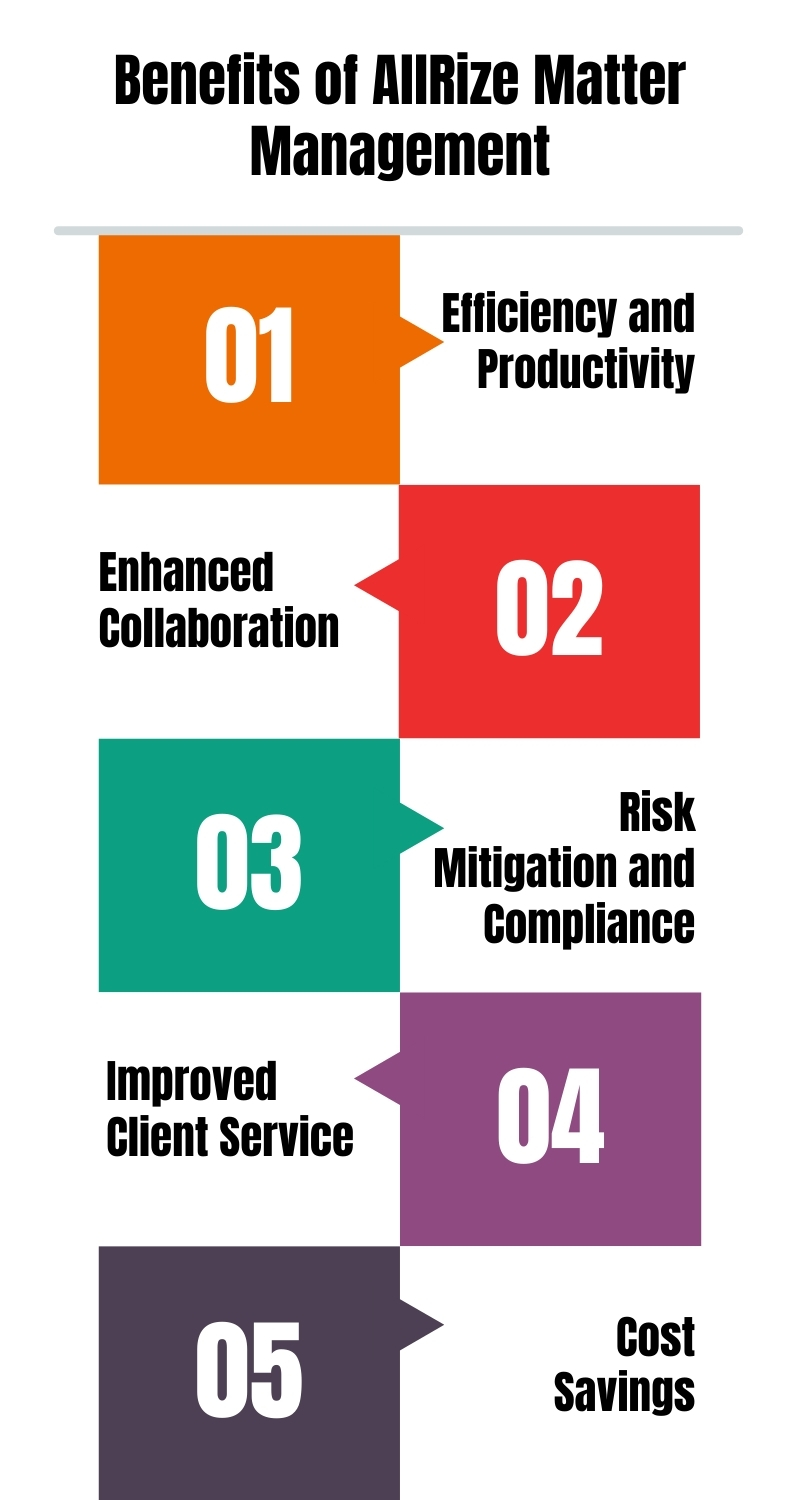AllRize Law Practice Management Platform
Matter Management Module
AllRize provides a centralized platform for managing all aspects of a case, from initial intake to resolution. With AllRize, legal teams can track time, manage deadlines, collaborate with colleagues, and keep clients informed.
The AllRize matter management platform enables law firms to standardize processes for attorneys and staff – minimizing redundant systems and reducing miscommunication.
Key Capabilities and Features of the AllRize Matter Management Module
1. Access All Case Details in One Place
Attorneys and staff can quickly view key details of any case from a comprehensive dashboard. Users can link every document, bill, email, contact, and more to a matter, and manage tasks from a central location. Sensitive case? Set permissions to control who can see what.
2. Task Management
Automatically assign universal tasks to every new matter such as signing a retainer agreement, conflict checks, and client communications. Stay on top of your to-do list by creating custom tasks and assign them to attorneys or staff.
3. Seamless Integration with Microsoft 365
AllRize is built on the Microsoft 365 platform, meaning for firms already using Microsoft, there is no complicated integration with existing systems or steep learning curve.

4. Streamline Client Communication
With the AllRize platform, clients will never have to wonder what is going on with their case. Attorneys and staff can seamlessly send update emails to clients with just a few clicks. Platform users can also automate status emails or deadline reminders to clients. All communications are tied to the matter, giving full visibility to everyone involved and eliminating duplicative contacts.
5. Automatic Deadline Calculation
Court deadlines are one of the biggest vulnerabilities for law firms. The AllRize platform automatically calculates filing deadlines at the beginning of a matter. Attorneys and staff can receive regular reminders and keep track of filings through the task management feature.
6. Custom Configuration
No two law firms are the same. That’s why the AllRize platform has customizable configurations that can be tailored to your firm’s specific needs.
Benefits of AllRize Matter Management
1. Efficiency and Productivity
Significantly reduce the time spent on administrative work by automating routine tasks, organizing information, and providing easy access to documents and data.
2. Enhanced Collaboration
Matter management software empowers you to work efficiently with your team members. It enables real-time communication, document sharing, and efficient task assignment.
3. Risk Mitigation and Compliance
By centralizing information and automating compliance checks, matter management software reduces the risk of errors and non-compliance, safeguarding your firm’s reputation and reducing legal exposure.
4. Improved Client Service
Sophisticated case tracking, quick access to files and automated task management means you’ll never miss a routine client update. When unanticipated questions arise, find answers quickly with centralized access to all documents and communications related to the matter.
5. Cost Savings
Lower your operational costs by automating manual tasks, reducing the need for physical storage space, and improving billing accuracy. Free up your team to spend more time working with clients and less time on administrative tasks.

